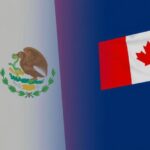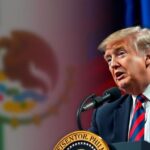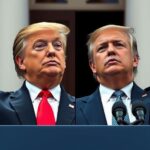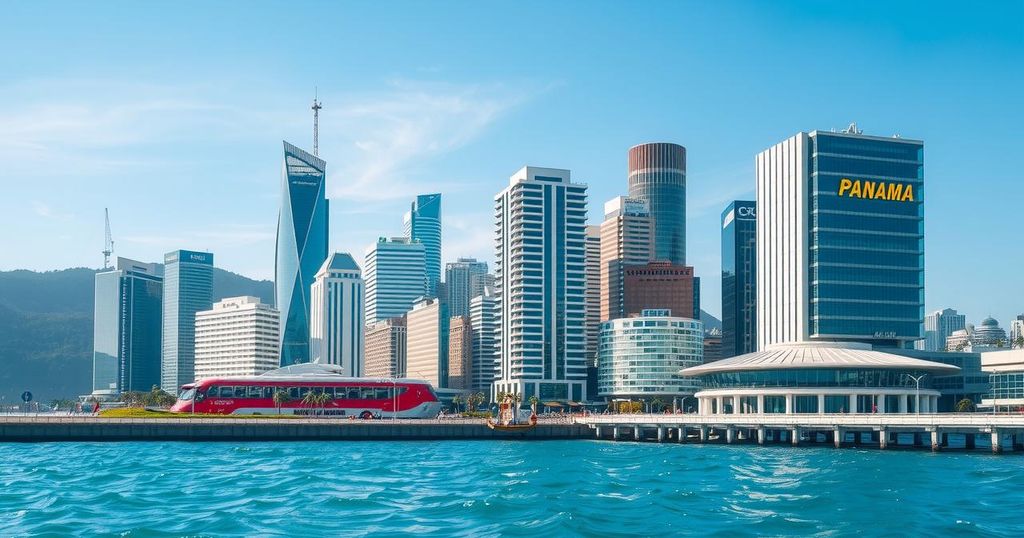Trump’s Tariff Dispute with Colombia: A Warning to Global Leaders
Donald Trump has initiated tariffs against Colombia after the country refused U.S. military flights carrying deported migrants. The president’s actions send a strong message regarding U.S. expectations for cooperation on immigration issues. As tensions rise, Colombia’s President Gustavo Petro has reciprocated with threats of retaliation while emphasizing Colombia’s openness to the world. The tariffs raise concerns over economic implications and complicate efforts to manage migration through Colombia.
In his early presidency, Donald Trump initiated an international tariff dispute against Colombia, diverging from his frequent criticisms of China, Mexico, and Canada. The incident arose when Colombia denied the landing of U.S. military flights carrying deported migrants, prompting Trump to assert that he would not tolerate violations of U.S. legal obligations. As a result, he announced significant tariffs, a travel ban, and visa revocations targeting Colombian officials and their supporters.
This tariff dispute reflects Trump’s willingness to use economic measures as a response to perceived shortcomings from allies in supporting U.S. immigration policies. By choosing Colombia, the administration served notice that cooperation with the U.S. is mandatory, emphasizing the consequences of non-compliance. This situation poses a challenge for Colombia and tests the effectiveness of the Trump administration’s foreign policy.
Observers are concerned about potential economic impacts resulting from these sanctions, particularly given the extensive importation of Colombian goods like coffee, which constitutes about 27% of U.S. coffee imports. The tariffs may incite Colombian producers to seek alternative markets, jeopardizing their market presence in the U.S. While Colombia’s President Gustavo Petro responded with strong rhetoric, accusing Trump of greed and underlying racial biases, he signaled a readiness to retaliate economically.
Petro emphasized that his administration would not reject deported Colombians but insisted on dignified treatment. He also indicated that Colombia would open its market to other nations, hinting at a potential pivot away from reliance on U.S. trade. However, the U.S.’s retaliatory tariffs complicate efforts to manage migration, particularly through critical routes like the Darien Gap, where many migrants traverse toward the U.S.
Despite escalating tensions, there might be avenues to de-escalate the matter through diplomatic channels. Nonetheless, these tariffs serve as a preliminary move from Trump, raising questions about the future of U.S.-Colombia relations and the broader implications for U.S. foreign policy concerning migration control in the region.
The article discusses the tensions between the Trump administration and Colombia following an incident where Colombia prohibited U.S. military flights from landing with deported migrants. This disagreement has sparked a swift response from Trump, who announced tariffs and sanctions against Colombia, signaling his administration’s hardline stance on immigration and international cooperation. These developments indicate a significant shift in U.S. foreign relations and highlight the challenges Colombia faces in maintaining its trade relations with the U.S.
The ongoing spat between the U.S. and Colombia not only tests bilateral relations but also sets a precedent for how the Trump administration will engage with allies on issues of immigration and economic cooperation. The potential economic fallout could affect both nations, illustrating the complexities of international diplomacy in an era of aggressive trade policies. The situation remains fluid, with both leaders indicating their unwillingness to back down, requiring careful navigation to avoid further escalation.
Original Source: www.bbc.com








Post Comment